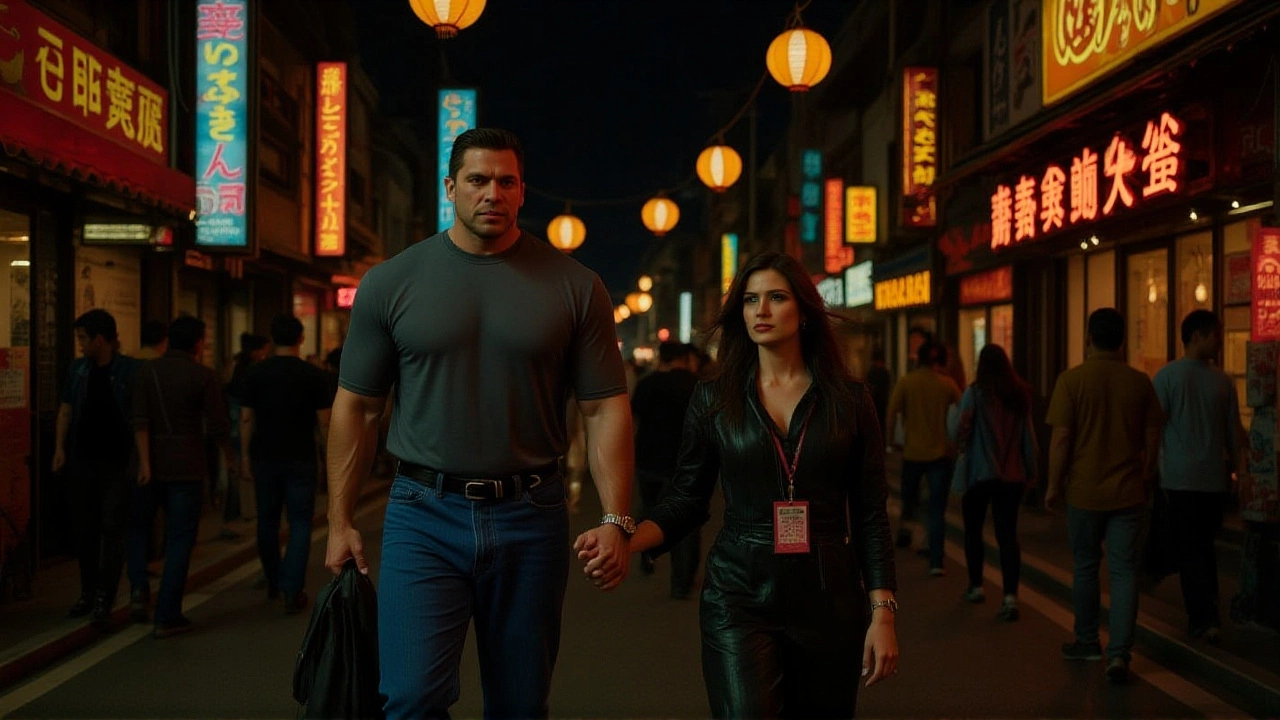When Dwayne Johnson, the former wrestling‑champ‑turned‑box‑office heavyweight, walked the red carpet at the 82nd Venice International Film FestivalVenice, he wasn’t just another star collecting a trophy. The Silver Lion was awarded to the biographical sports drama ‘The Smashing Machine’, crowning Johnson’s breakout dramatic performance as MMA pioneer Mark Kerr.
The ceremony took place on September 1, 2025, in the historic Lido piazza, and the win sent shockwaves through both the festival circuit and Hollywood. The film, written, directed, co‑produced and edited by Benny Safdie, will hit U.S. theaters on October 3, 2025, under the banner of A24. Critics are already hailing Johnson’s turn as the best of his career – a stark contrast to the action‑hero roles that made him a household name.
From Documentary to Feature: The Film’s Roots
‘The Smashing Machine’ builds on the 2002 documentary ‘The Smashing Machine: The Life and Times of Extreme Fighter Mark Kerr, which chronicled the meteoric rise and turbulent fall of the early‑2000s UFC star. Benny Safdie, best known for his gritty New York‑centric dramas, saw an opportunity to explore the inner life of a fighter who seemed unstoppable in the Octagon but vulnerable outside it.
Safdie’s director’s statement mentions the concept of “Radical Empathy” – an attempt to inhabit Kerr’s world so fully that the audience feels the weight of his triumphs and setbacks. “Our heroes bleed just like everyone else,” Safdie said in an interview, adding that the film shows how physical power does not guarantee emotional invincibility.
Silver Lion Victory and Critical Reception
Winning the Silver Lion is no small feat. The award, traditionally reserved for films that push artistic boundaries, places ‘The Smashing Machine’ among the likes of ‘Parasite’ and ‘Nomadland’ in festival lore. The jury highlighted Johnson’s “raw, unflinching embodiment of a complex athlete” as a key factor.
Major publications have echoed the sentiment. The New York Times called his performance “a thrilling metamorphosis,” while Variety noted that Johnson “finally steps out of the muscle‑bound shadow and into true cinematic depth.” The film’s 123‑minute runtime is packed with visceral fight sequences, but it’s the quieter moments – a heated argument with Dawn Staples (played by Emily Blunt) and a solitary night in a rehab center – that reviewers say linger longest.
Cast, Characters, and Cameos
Beyond Johnson and Blunt, the ensemble delivers a roster of real‑life fighting legends. Former UFC champion Ryan Bader portrays rival Mark Coleman, while Dutch‑American fighter Bas Rutten appears as himself, lending an authentic ring‑side voice. Ukrainian heavyweight Oleksandr Usyk steps into the role of Igor Vovchanchyn, and Japanese former champion Satoshi Ishii portrays Enson Inoue.
The supporting cast also includes Lyndsey Gavin as Elizabeth Coleman, James Moontasri as Akira Shoji, and Yoko Hamamura as Kazuyuki Fujita, each adding texture to the MMA ecosystem of the early 2000s.
Production Details and Creative Vision
The visual language of the film bears the hallmarks of cinematographer Maceo Bishop, who captures both the sweat‑glazed intensity of cage fights and the stark, neon‑lit back‑rooms where fighters unwind. Production designer James Chinlund reconstructed the gritty gyms of New Jersey and the glossy backstage of early UFC events.
Costume designer Heidi Bivens sourced authentic combat gear, while composer Nala Sinephro layered a minimalist score over the roar of crowds, underscoring the film’s melancholy themes.
Out for the Count Productions, Seven Bucks Productions, and Magnetic Fields Entertainment co‑produced the film, pooling resources to ensure both high‑octane fight choreography and the quieter, character‑driven moments.
Release Strategy, Awards Season Outlook
With the Silver Lion in its pocket, A24 is positioning the film as a contender for the upcoming awards season. The October 3, 2025 U.S. release gives it enough runway for Oscar‑season screenings, while a limited international rollout will keep festival buzz alive.
Industry insiders predict a strong showing at the Golden Globes and Critics’ Choice Awards, especially in the categories of Best Actor and Best Adapted Screenplay (the latter crediting Safdie’s extensive work on the script). If the momentum holds, the film could become a rare example of a mainstream star‑driven vehicle that also earns serious critical acclaim.
Why This Matters to Audiences
The film arrives at a moment when mixed‑martial‑arts culture is more mainstream than ever, thanks to the rise of UFC’s global reach and celebrity fights. Yet, ‘The Smashing Machine’ reminds viewers that behind every knockout is a human story of ambition, trauma, and redemption. For fans of Johnson, it offers a new dimension to a familiar face; for cinephiles, it demonstrates how genre‑bending projects can thrive in the festival arena.
In short, the Silver Lion win signals not just a personal triumph for Johnson, but also a broader shift toward more nuanced storytelling in sports cinema.

Frequently Asked Questions
How does Dwayne Johnson's performance differ from his typical roles?
Johnson sheds his usual larger‑than‑life superhero swagger for a restrained, introspective portrayal of Mark Kerr. Critics note his use of subtle body language and a softer vocal tone, allowing the audience to glimpse Kerr’s inner turmoil rather than just his physical prowess.
What is the significance of the Silver Lion award?
The Silver Lion honors the best director at Venice, but the jury also uses it to recognize films that push artistic boundaries. In this case, it validates Benny Safdie’s daring blend of documentary realism and dramatic storytelling, and it elevates the film’s profile for the upcoming awards season.
When and where can audiences see the film?
A24 has slated a U.S. theatrical release for October 3, 2025, with limited screenings in major cities like New York, Los Angeles, and Chicago. Internationally, the film will roll out through select art‑house circuits, beginning in Europe shortly after the U.S. debut.
What does ‘Radical Empathy’ mean for the film’s storytelling?
Safdie describes ‘Radical Empathy’ as an immersive approach where the filmmaker strives to experience the subject’s emotions and decisions from the inside. This translates on screen to moments where viewers feel the pressure of a fight and the isolation of post‑career life, rather than just watching events unfold.
Will the film influence how MMA is portrayed in future movies?
Industry analysts believe ‘The Smashing Machine’ sets a new benchmark for authenticity, combining real‑life fighter cameos with a deep psychological focus. If its awards run succeeds, studios may invest more in character‑driven, sport‑centric dramas rather than pure action spectacles.

